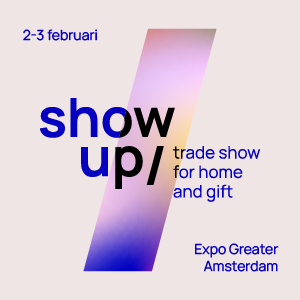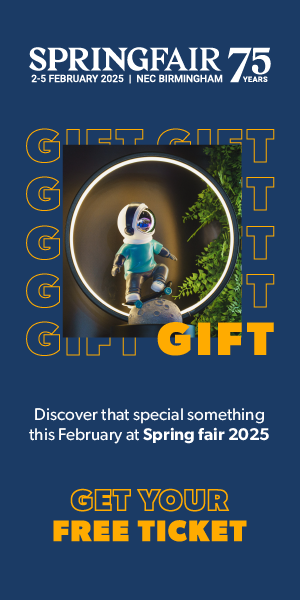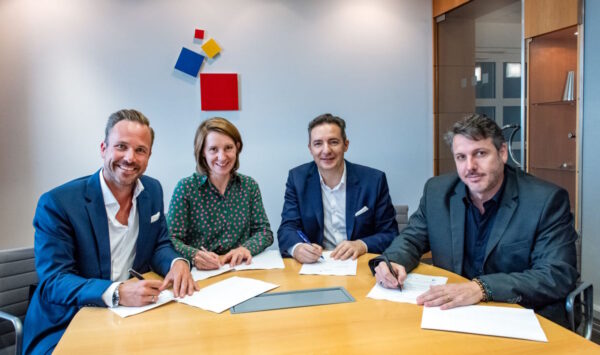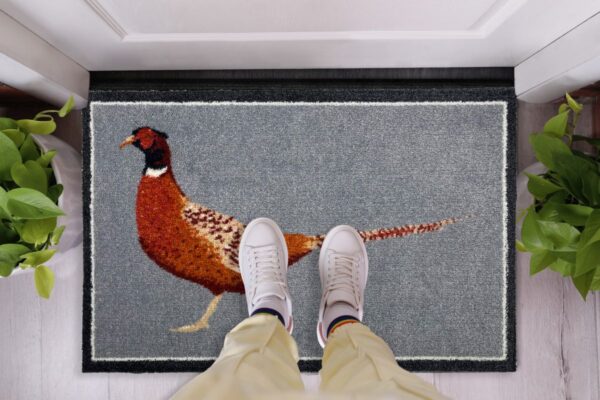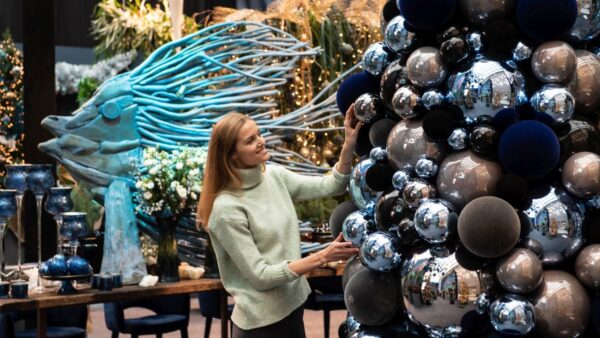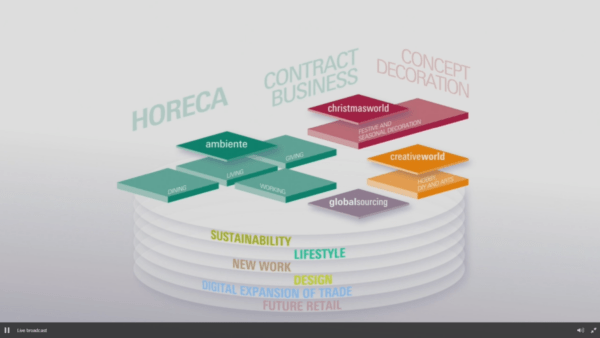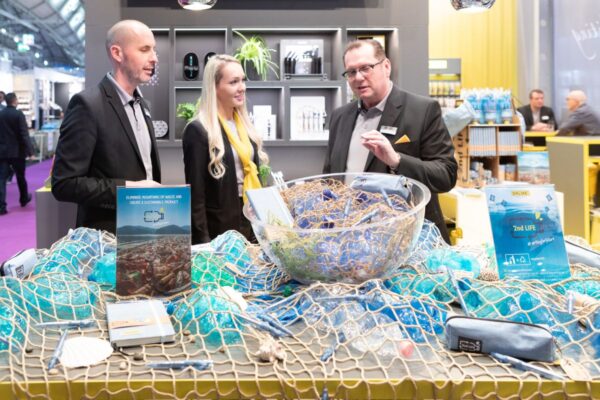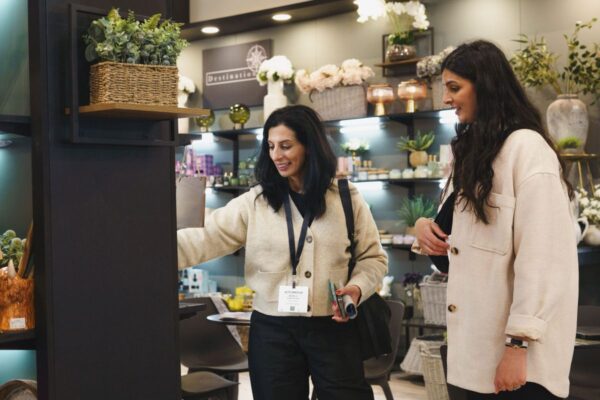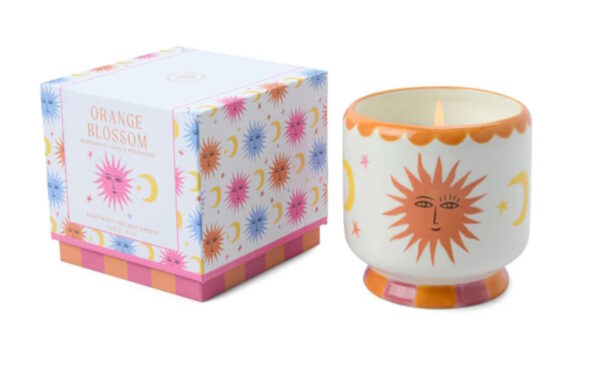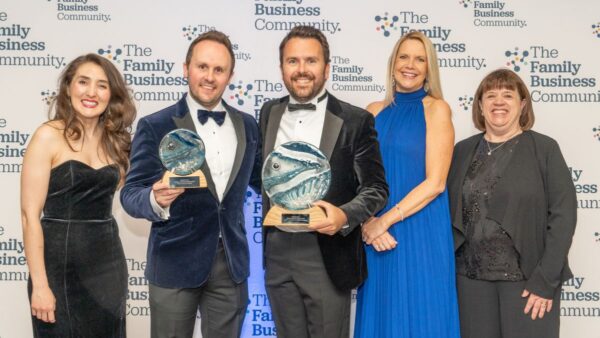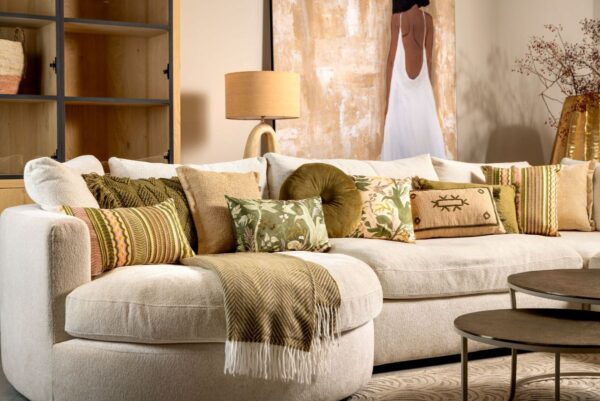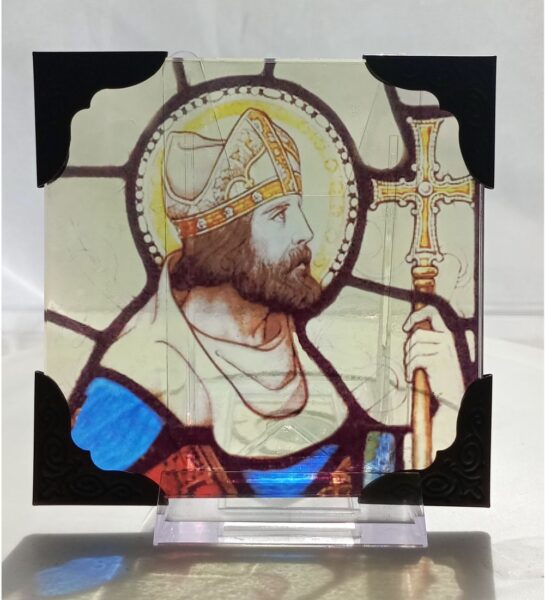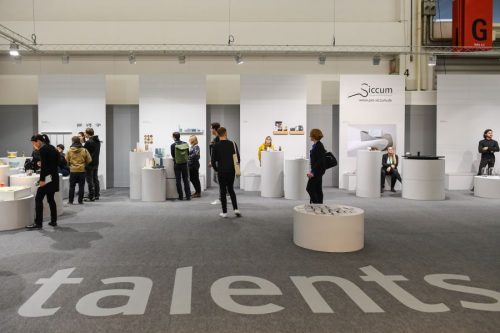 From 8 to 12 February 2019 Talents at Ambiente will be sending out sophisticated messages to counteract global consumerism. welcoming 36 up-and-coming designers from 18 countries to its successful promotional programme. Under the new structure of the trade show, the Living area for young designers has moved to Hall 8, while Dining Talents remains in Hall 4.0.
From 8 to 12 February 2019 Talents at Ambiente will be sending out sophisticated messages to counteract global consumerism. welcoming 36 up-and-coming designers from 18 countries to its successful promotional programme. Under the new structure of the trade show, the Living area for young designers has moved to Hall 8, while Dining Talents remains in Hall 4.0.
In 2019 Ambiente Talents will address the challenges involved in creating designing forward-looking products which retain their value. “This year’s selection will be conspicuous for the sensitivity with which the talented designers approach both traditional cultural techniques and also new technologies, transforming them into highly coherent product worlds,” explains Nicolette Naumann, Vice President of Ambiente.
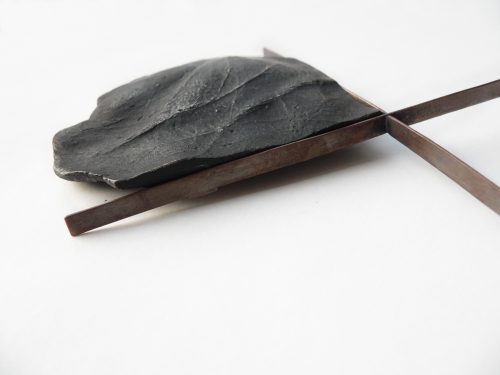 The Talents area in the Interior Design hall (Hall 8.0, G10) will feature 24 participants and their studies, which include unique handmade items and limited series as well as designs that are ready for production. They effortlessly cover everything from furniture and home accessories to jewellery. One example is Veresa Eybl from Vienna, who will be showing two different product lines at Ambiente, both with a harmoniously consistent vocabulary of design.
The Talents area in the Interior Design hall (Hall 8.0, G10) will feature 24 participants and their studies, which include unique handmade items and limited series as well as designs that are ready for production. They effortlessly cover everything from furniture and home accessories to jewellery. One example is Veresa Eybl from Vienna, who will be showing two different product lines at Ambiente, both with a harmoniously consistent vocabulary of design.
Her delicate series of vases, Arc, translates the Japanese tradition of Ikebana into mathematical curves, so that their vocabulary of form becomes reproducible. Matching this harmony, her jewellery line, 360°deg, is a modular system where each element can function both as a stand-alone item and in combination with others.
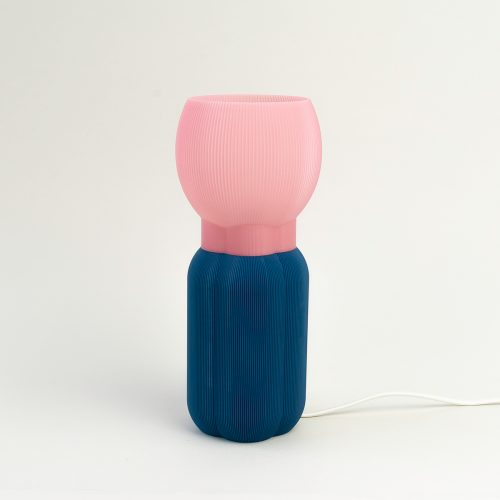 Lamps and vases on demand. The UAU Project from Warsaw leverages the benefits of 3D printing in a forward-looking approach to manufacturing. Their products, which are intended for daily life, can be manufactured wherever technology allows it – and indeed with almost no rejects, waste or transport. The Case Studies label, on the other hand, features knitted products that focus on spatial proximity. All of their home textiles are based on design and colour studies conducted at the company’s own studios in Berlin and are made in Germany.
Lamps and vases on demand. The UAU Project from Warsaw leverages the benefits of 3D printing in a forward-looking approach to manufacturing. Their products, which are intended for daily life, can be manufactured wherever technology allows it – and indeed with almost no rejects, waste or transport. The Case Studies label, on the other hand, features knitted products that focus on spatial proximity. All of their home textiles are based on design and colour studies conducted at the company’s own studios in Berlin and are made in Germany.
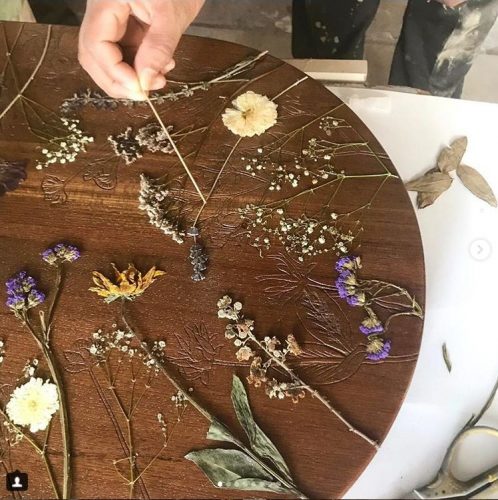 Location and origin are equally crucial for the following designers. Roshad Shroff, from this year’s Ambiente partner country India, will be in the Talents area, right next to the two winners of the ILA Interior Lifestyle Awards, Pravinsinh Solanki and Solid Bench. Roshad Shroff is an architect and designer who combines the DNA of India with a modern vocabulary of form. He derives his inspiration from traditional handicrafts and architecture and translates it into contemporary embroidery patterns to cover his delicate handmade furniture.
Location and origin are equally crucial for the following designers. Roshad Shroff, from this year’s Ambiente partner country India, will be in the Talents area, right next to the two winners of the ILA Interior Lifestyle Awards, Pravinsinh Solanki and Solid Bench. Roshad Shroff is an architect and designer who combines the DNA of India with a modern vocabulary of form. He derives his inspiration from traditional handicrafts and architecture and translates it into contemporary embroidery patterns to cover his delicate handmade furniture.
Traditional techniques are also the hallmark of Pravinsinh Solanki, an industrial designer. Using bamboo, a viable and highly renewable material, he presents products that combine aesthetics, traditional origins and sustainability in a unique manner. Solid Bench, on the other hand, focuses on the inherent beauty of nature as its starting point. Each item of furniture is made from a single piece of wood. The natural properties of the raw material are integrated directly into the design, creating totally unique pieces which could easily become heirlooms and are the exact opposite of mass-produced consumer products.
Dining culture in a state of flux
“Panta Rhei” – everything is in a state of flux. This project by the product designer Jihye Kang from Berlin expresses the special dynamics in the Talents area in Hall 4.0, stand F71, as it conveys the continuity of change in dining culture. In this particular instance Jihye Kang reinterprets water as a formative force. By flowing over a surface, water creates exciting peeling effects in the production process. The resulting traces on the surface of a porcelain vase turn each item into a unique object.
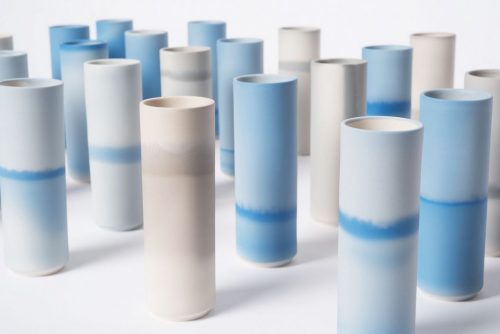 Maria Braun responds to current changes in our eating patterns. Her multifunctional porcelain series, Univessels, can be used not only for serving food and drinks, but also for cooking, baking, storage, freezing and heating up. It’s a collaborative project together with the Eschenbach Porcelain Group, whose patented InducTherm porcelain combines the given qualities of the material with special heat resistance.
Maria Braun responds to current changes in our eating patterns. Her multifunctional porcelain series, Univessels, can be used not only for serving food and drinks, but also for cooking, baking, storage, freezing and heating up. It’s a collaborative project together with the Eschenbach Porcelain Group, whose patented InducTherm porcelain combines the given qualities of the material with special heat resistance.
The creation of new environments is also a focal area for Lotte Schlör, a student at Burg Giebichenstein University of Art and Design. Her contribution to Talents includes a series called Fitted Space, where she has created a solution for small living quarters using a simple trick. The inefficient round shape of a traditional bowl is reversed by two parallel cuts. Without spoiling the characteristic features of a bowl, the new shape allows greater flexibility when using the bowls as well as saving storage space.





